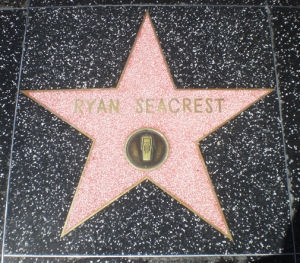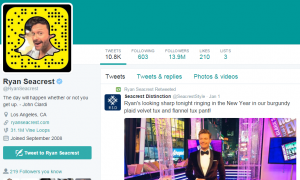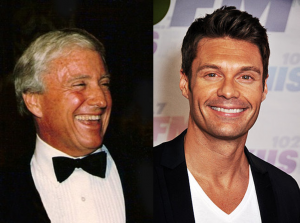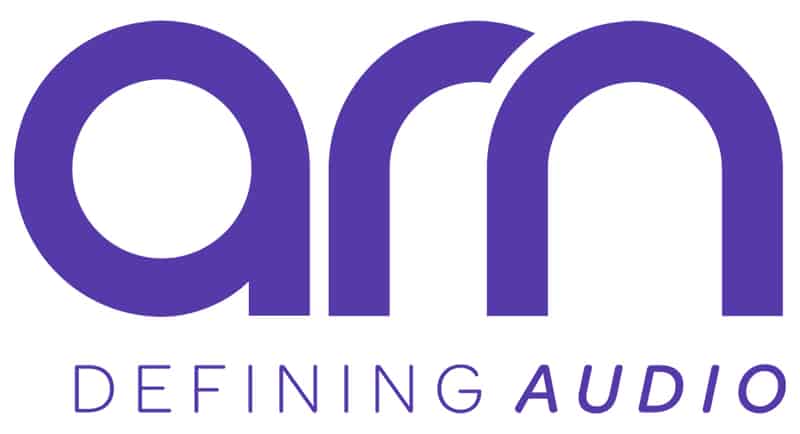10 Reasons Why Ryan Seacrest Is Kicking Your Ass

Last month, the New York Times profiled perhaps the most successful disc jockey in the world, Ryan Seacrest. It’s actually a misnomer to use the “DJ” moniker to describe Seacrest because he has used the radio studio as a jumping off point to build a truly awesome multi-media brand. And yet, he hasn’t forgotten his roots.
On social media last week, some described Seacrest and his co-stars on Rockin’ New Year’s Eve as lame or even cringeworthy. Others openly question whether the guy has talent, and specifically, what are his skills. Some of you may have even thought while watching or listening to Seacrest that you have as much, if not more, talent than he does.
So how did he get to this point where there’s no other personality in radio who can come even remotely close to his level of success?
In the New York Times piece, written by Guy Trebay, Larry King suggests it’s not Seacrest’s humor or even his voice. But as the article notes, he makes just about any media job look easy – and most of you reading this blog know how hard that truly is to pull off. The guy is simply smooth, skilled, and charming.
Digging a bit deeper into this Seacrest profile turns into primer about how today’s radio personalities might rethink their approaches, and frankly think more like Seacrest. Because whether you like him or not, Ryan Seacrest has accomplished what few radio personalities have been able to pull off. With apologies to Howard Stern, he may have become the new “King of All Media.”
There’s always a lot of talk at Don Anthony’s “Morning Show Boot Camp” (ironically this year in Seacrest’s hometown of Atlanta) about building personality brands. The Times article on Ryan Seacrest is a step by step game plan for building wealth, power, and security in the media and entertainment business. And like many of you, it all started in a radio studio.
Here’s how he’s done it – along with the key steps that any DJ could put into action:
1. Everything for a reason – The money quote in the article is obvious:
“I don’t believe I’ve ever done anything on camera or on the microphone without thinking of the back house opportunities and the next business play.”
If you think about it, that’s how Seacrest – as well as personalities like Glenn Beck, Howard Stern, Rush Limbaugh, and Dave Ramsey – has approached his craft. There’s a reason for everything and a purpose to each task, opportunity, appearance, and connection.
Thinking through “What’s next?” and what it can mean down the road is truly Seacrest’s formula behind building his brand. The great news is that any DJ, show, or host in Anytown, USA, can use this same approach. Whether you’re a charity spokesperson, making a speech to a high school class, or doing a car dealer remote, there is the potential for these activities and the relationships they nurture to have future payoffs. But you have to think them through, and see them for more than a series of one-off events and activities.
 2. Overcome your insecurities – One of the little-known secrets about Ryan Seacrest is that he was admittedly overweight as a kid, creating a feeling of discomfort while growing up. I have yet to meet a radio personality who doesn’t have insecurities of their own – emotional baggage that can haunt a career and even take it down.
2. Overcome your insecurities – One of the little-known secrets about Ryan Seacrest is that he was admittedly overweight as a kid, creating a feeling of discomfort while growing up. I have yet to meet a radio personality who doesn’t have insecurities of their own – emotional baggage that can haunt a career and even take it down.
Seacrest overcame his adolescent issues, and made himself into the cool guy; someone who truly has become a celebrity to be reckoned with. None of this happens by accident, and it requires meeting insecurities and doubts head-on – and vanquishing them.
For radio DJs, overcoming those demons can be the difference between a career filled with frustration, anger, and angst, or beating it all back and excelling in areas that were once roadblocks.
3. Take on any job – During his storied career, Ryan Seacrest has pretty much hosted anything and everything. From kiddie TV shows to reality TV to trivia contests, he’s done it all.
When you’ve been the front man on everything from ESPN’s Radical Outdoor Challenge to Gladiators 2000 to Wild Animal Games, you earn your chops, build up exposure, and make industry contacts that lead to opportunities like American Idol and New Year’s Rockin’ Eve. One thing indeed leads to another, but it begins with saying “yes” to every exposure opportunity. For local air personalities, that “can do” attitude is a big separator between you and everyone else.
4. Work your ass off – From his syndicated radio show to American Idol to various roles on E! to the 2016 Olympics in Rio, Seacrest has taken a tireless approach to building his brand. You may not know that he’s the producer of Keeping Up With the Kardashians, along with a variety of other reality TV shows.
You don’t get to become a Seacrestian brand without a legendary work ethic. In the Times article, Jennifer Lopez sees Seacrest quips, “Ryan and I often joke with each other who has had the least amount of sleep or number of days off.”
There is no substitute for simply outworking the competition. And when you’re driven to building a celebrity media brand – you’ll do it all. By taking a secondary role in NBC’s 2012 Olympics coverage in London, Seacrest got rewarded with an expanded role in this year’s Rio games. Everything happens for a reason, but it starts with a Herculean attitude toward doing your job – and lots of other jobs.
5. Work the community – It’s all about local connections, even if you’re a global star like Seacrest has become. His local Hollywood community is an important one, because it’s the base of his connections and power.
Seacrest now sits on the board of the Los Angeles County Museum of ryan seacrest twitterArt, whose trustees include some of the biggest names in the community – from Pritzker to Grazer to Tisch.
Seacrest also keeps close to Atlanta. His Ryan Seacrest Foundation has two centers – one in Atlanta and the other in Philadelphia.
On the local level, this is a critical piece for radio personalities who seek to be positive forces in their hometown communities, while leveraging this activity to create even deeper roots and connections.
 6. Learn the social media ropes – There are few successful mega-celebrities at any level of the entertainment industry who have ignored or “mailed in” Facebook, Twitter, Instagram, and other key social channels. On Twitter, Seacrest is nearing 14 million followers, while over on Instagram, he’s well above the 2 million mark.
6. Learn the social media ropes – There are few successful mega-celebrities at any level of the entertainment industry who have ignored or “mailed in” Facebook, Twitter, Instagram, and other key social channels. On Twitter, Seacrest is nearing 14 million followers, while over on Instagram, he’s well above the 2 million mark.
Recognition of the need to interact socially and to show your fans your life and your personality is something Seacrest grasps. Many radio personalities continue to struggle with social media, missing out on the chance to reveal their different sides in ways that just don’t translate on the air. The chance to thank and acknowledge others – staffers, audience members, fans, cops, service workers – is what social interaction is all about. Yes, it takes time. But it also requires thought, kindness, and caring – and you can see this regularly in Seacrest’s social messaging.
 7. Don’t forget where you came from – I’ve heard people in radio wonder why Seacrest is still on the air. After all, his television and other global media activities have superseded his radio show.
7. Don’t forget where you came from – I’ve heard people in radio wonder why Seacrest is still on the air. After all, his television and other global media activities have superseded his radio show.
But On Air With Ryan Seacrest is heard on 126 U.S. markets, along with 50 international cities. That radio reach is powerful, allowing Seacrest the chance to intimately connect with millions and millions of listeners in ways he cannot on American Idol or on any number of red carpets. Plus, to be the morning guy on KIIS-FM in L.A. is a key component of what Seacrest is all about, not to mention he’s the morning guy in the world’s biggest entertainment market.
Seacrest got his start on WSTR in Atlanta, and continues to make radio a key component of his empire. This is a reminder to every personality in radio about the power of the medium, and its unique importance in the communications world. The Times estimates that Seacrest is worth hundreds of millions of dollars. And like many of you, he wakes up early, sits behind the mic, and talks to a hunk of glass.
 8. Choose a great mentor – In Seacrest’s case, it’s Merv Griffin, who some of you may remember was sort of the Ryan Seacrest omerv ryanf his day. Starting as a big band singer, Griffin became a TV talk show host who then created hit game shows (Jeopardy and Wheel of Fortune), which led to a legacy worth nearly a billion dollars when he passed away nearly a decade ago.
8. Choose a great mentor – In Seacrest’s case, it’s Merv Griffin, who some of you may remember was sort of the Ryan Seacrest omerv ryanf his day. Starting as a big band singer, Griffin became a TV talk show host who then created hit game shows (Jeopardy and Wheel of Fortune), which led to a legacy worth nearly a billion dollars when he passed away nearly a decade ago.
As Seacrest told the Times, “What crystalized for me when I sat with Merv in a meeting was seeing everything I did as a course in the class of what to do next.”
For radio personalities, the value of having a mentor is a key to seeing and shaping your future. Who do you admire in the business? Who has accomplished the things you dream of? Can you establish a relationship with that person, or even learn the ropes from afar?
9. Plan for what’s next – In so many of these earlier steps, a key to Ryan Seacrest’s ascend to success has been looking down the road, making a plan, and staying with it. Using radio and then TV as a launching pad, he has been able to create other enterprises that leverage his core abilities.
He told the Times that “Show business is what drives the other businesses.” And for Seacrest, that means a line of men’s clothing available at Macy’s stores – Ryan Seacrest Distinction. In this area of brand extension, there is obviously much more to come. And that should signal opportunity for radio’s personality shows big and small.
The chance to grow a DJ francise with merchandizing and other branded products has never been greater. Thinking beyond the microphone into other interests that make sense (John Boy & Billy, for example, have marketed their own “Grillin’ Sauce” line), is all part of the residuals that come with building a great personality brand.
10. Don’t rest on your laurels – When you’ve got big ratings, there’s a tendency to kick back and enjoy the moment. It is notable that as American Idol rapidly became the megawatt hit of this new century, Seacrest used its success to create a runway “to build annuities that would outlast the show.”
In showbiz, as in life, nothing lasts forever, ratings come down, and the public moves on to the next big thing. When Idol finally goes off the air, the one person with nothing to worry about will be Ryan Seacrest.
Planning for any eventuality is exactly how local radio personalities can ensure there’s life beyond their station or their show. As we well know, stations get sold, consolidation happens, and not everything is in your control. Using a hit show to help establish additional business and branding opportunities is just smart. Jeffrey Katzenberg describes Ryan Seacrest as a “natural learner,” and that’s a quality that is so essential to building and maintaining a strong presence and a successful franchise.
So many showbiz rises and falls are attributable to talent that failed to keep up with the changes.
Ryan Seacrest is not that guy.
 Fred Jacobs
Fred Jacobs
President Jacobs Media
Fred has emerged over the past two decades as one of radio’s leading visionaries. He founded Jacobs Media in 1983, when he had the notion that Album Rock could be fragmented by the creation of the Classic Rock format. Today, Classic Rock stands out as the most successful radio format in the last 20 years. Prior to launching the company, Fred spent the majority of his time designing and managing research projects as the Director of Research for the Radio and Publishing divisions for Frank N. Magid Associates, a leading research and consulting firm. Later, Fred became Director of Radio Research for the ABC-FM Owned and Operated Radio Stations. From there, Fred gravitated to the station side, becoming program director for legendary WRIF-FM in Detroit, before forming Jacobs Media. Along with providing the creative and intellectual direction for the company, Fred consults Jacobs Media’s major market Classic, Mainstream, and Active Rock clients, while having input in every client relationship.
You can find out more about Jacobs Media here.


